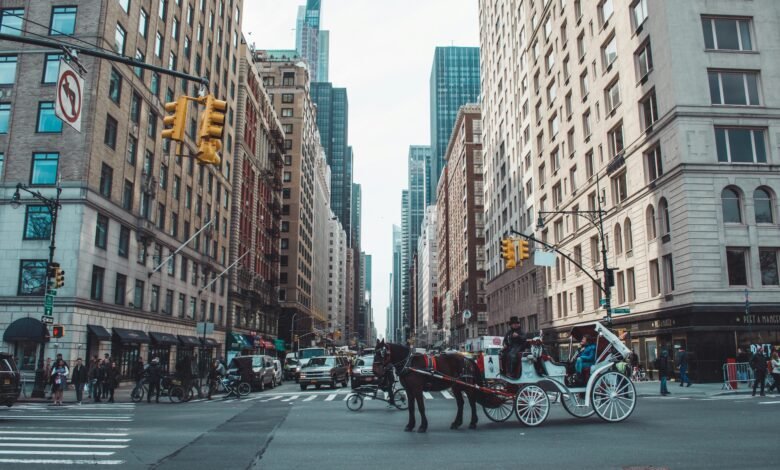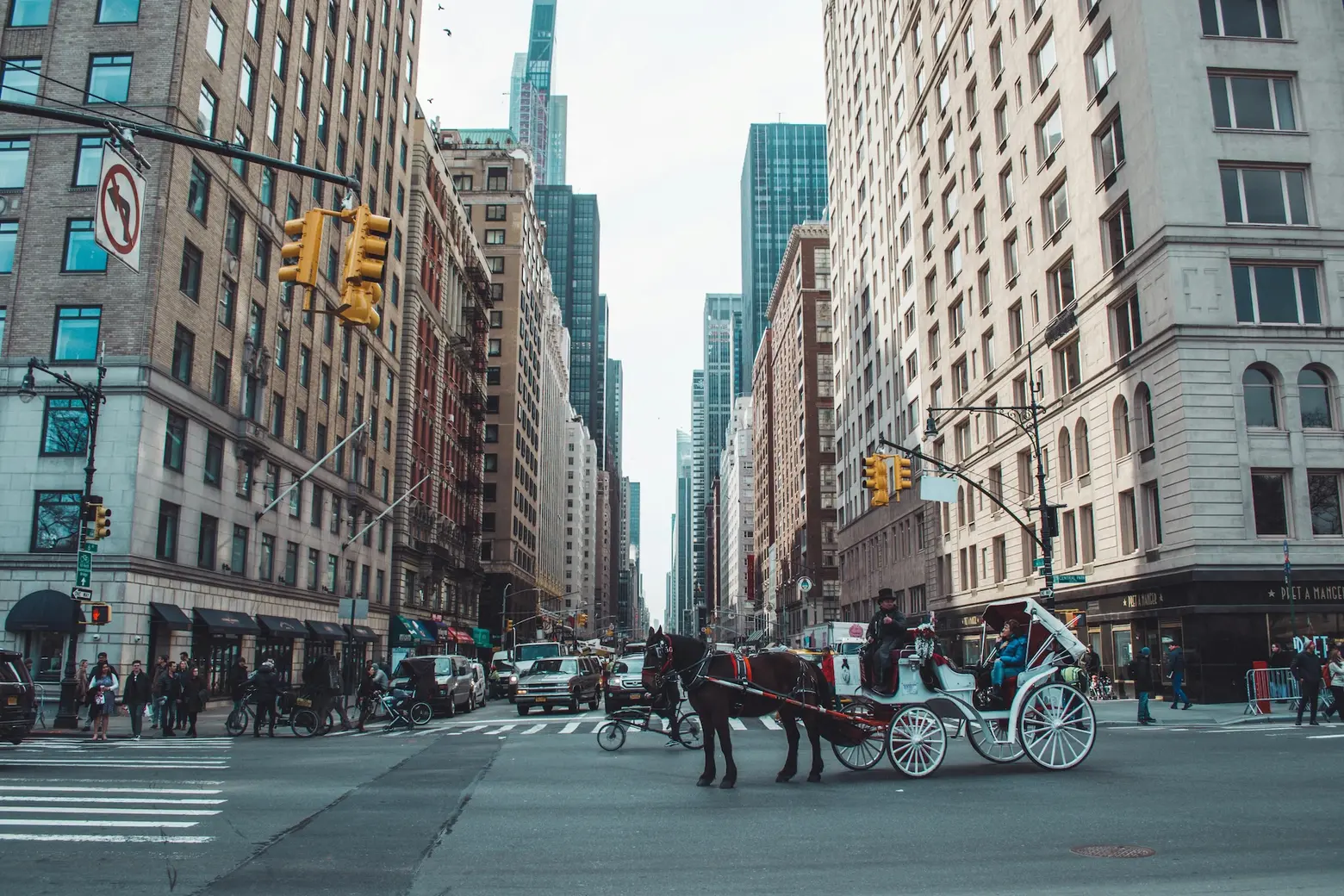Central Park Conservancy endorses horse-drawn carriage ban


For the first time, the Central Park Conservancy has taken a side in the city’s horse-drawn carriage debate, backing a City Council bill that would ban the rides from the park. On Tuesday, the nonprofit publicly called for the end of horse-drawn carriages in Central Park, calling them unsafe, damaging to the park’s roads, and incompatible with the growing crowds. The bill, known as “Ryder’s Law,” would phase out carriage horses by 2026 and help drivers transition to other jobs, according to Gothamist. The Conservancy’s endorsement comes a week after a horse collapsed and died in Hell’s Kitchen, reigniting debate over the future of horse-drawn carriages.
The bill has 19 sponsors but has not received a hearing since its introduction last year.
Horse-drawn carriages are somewhat synonymous with Central Park, and have been a fixture since its creation in the late 1800s, when the animals were still the main mode of transportation around the city.
In their reasoning, the group cited two incidents in May when horses broke free from their handlers in the park and ran uncontrolled. In one case, a horse injured a pedicab driver, putting other parkgoers at risk. They also pointed to manure frequently left on park drives and carriages illegally lining up near Columbus Circle.
The group also said that the heavy carriages and steel horseshoes quickly degrade the park’s roads—many of them newly repaved—within just a few months.
“After many years of maintaining a neutral stance, the Central Park Conservancy is writing to formally express its opposition to the continued operation of horse-drawn carriages in Central Park,” Elizabeth Smith, president of the Conservancy, wrote in a letter to Mayor Eric Adams and Council Speaker Adrienne Adams, as reported by West Side Rag.
“We do not take this position lightly, but with visitation to the Park growing to record levels, we feel strongly that banning horse carriages has become a matter of public health and safety for Park visitors.”
John Samuelson, president of the Transport Workers Union International—which represents carriage drivers—called the Conservancy “corporate aristocrats” and said the law would put roughly 200 blue-collar workers out of work, according to the New York Times.
Samuelson said the Conservancy was “outrageously supporting a measure that would throw about 200 blue-collar workers in the carriage-horse tourism industry out of work, with no regard for how they will pay their rents, mortgages, send their kids to college, put food on the table or meet other expenses.”
He also accused the Conservancy of “desecrating the park’s storied history,” arguing that Frederick Law Olmsted and Calvert Vaux designed the park in the 1850s “specifically for horse-drawn carriages to roll through the sculpted landscape.”
According to the Times, the city’s carriage trade consists of 68 licensed owners, 183 licensed horses, and 231 licensed drivers, with about 170 drivers currently active and additional stable hands making up the rest of the workforce.
Ryder’s Law, first introduced in 2022 by Council Member Robert Holden, is named after a horse that collapsed in Hell’s Kitchen and was later euthanized. If enacted, it would ban horse-drawn carriages citywide by June 2026.
Last Tuesday, a 15-year-old mare named Lady died from an aortic rupture, likely caused by a small tumor in her adrenal gland, CBS reported. While animal rights groups say Ryder’s Law would help prevent such incidents, the union representing the carriage horse operators called it a “sudden-death medical episode” that “would kill a horse anywhere.”
RELATED:
Interested in similar content?
Source link




